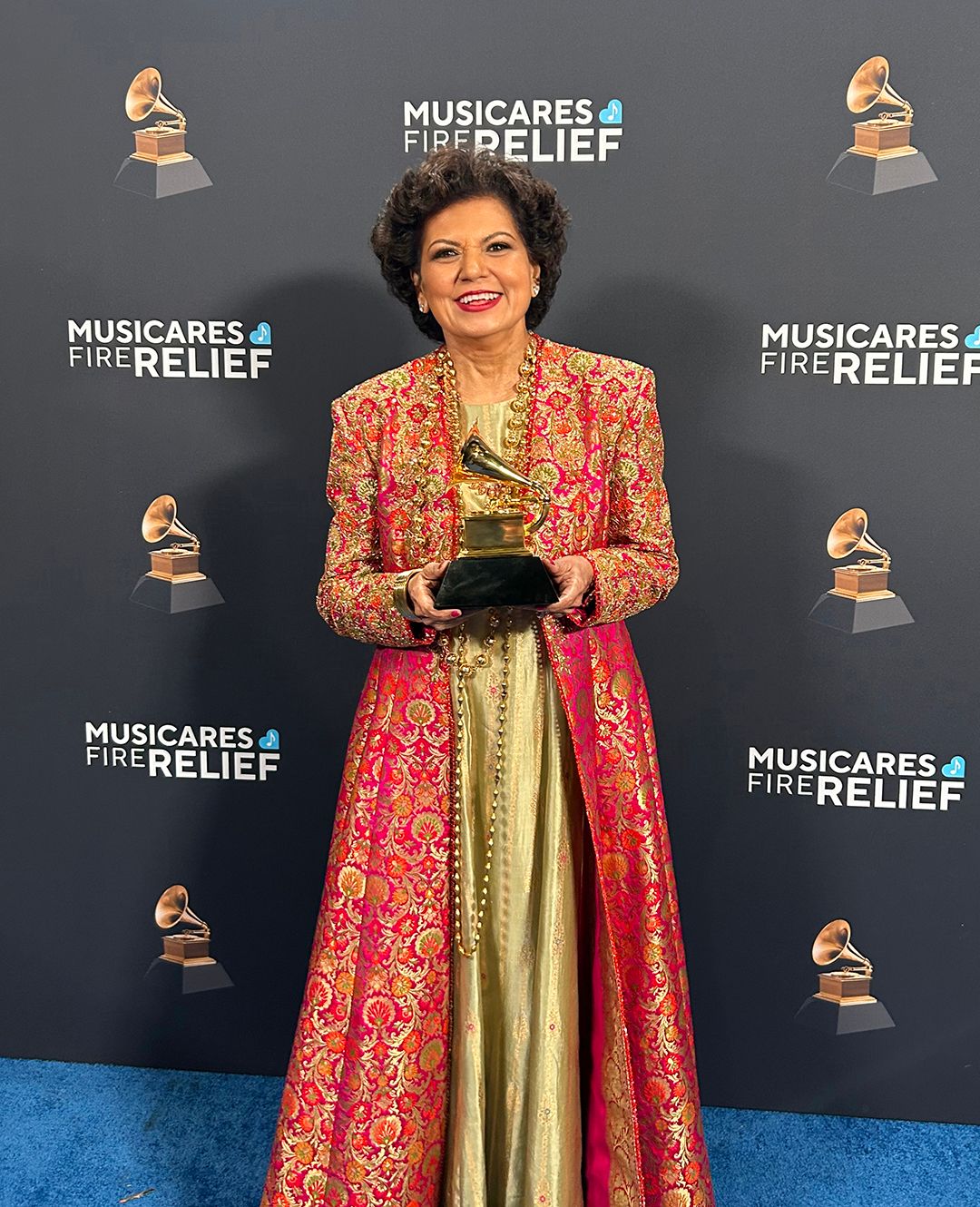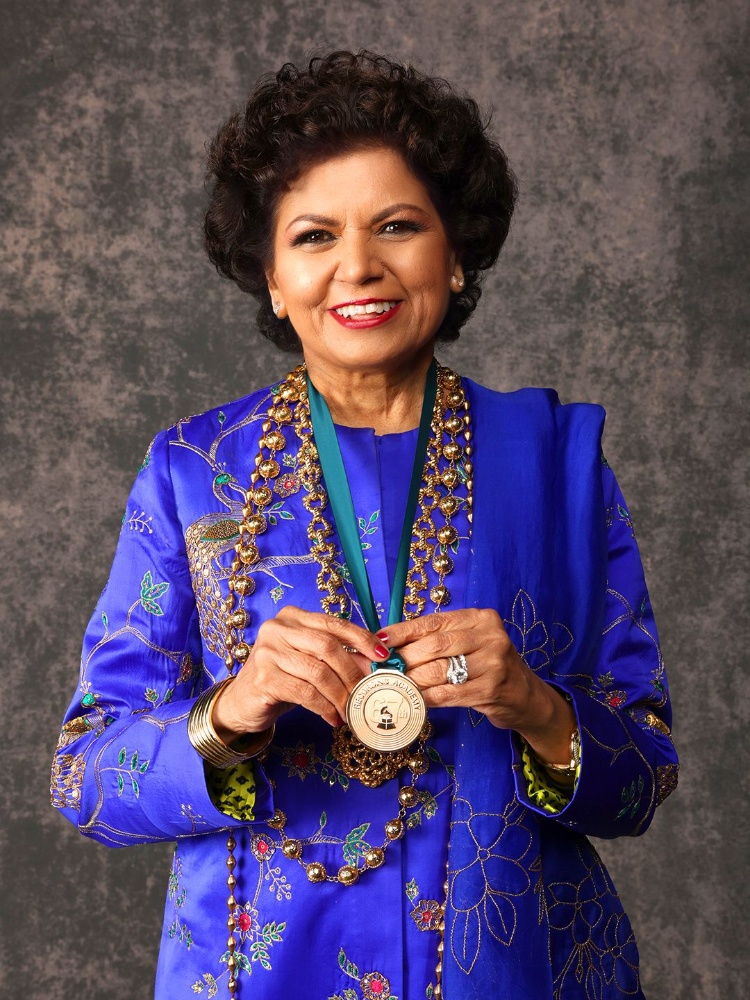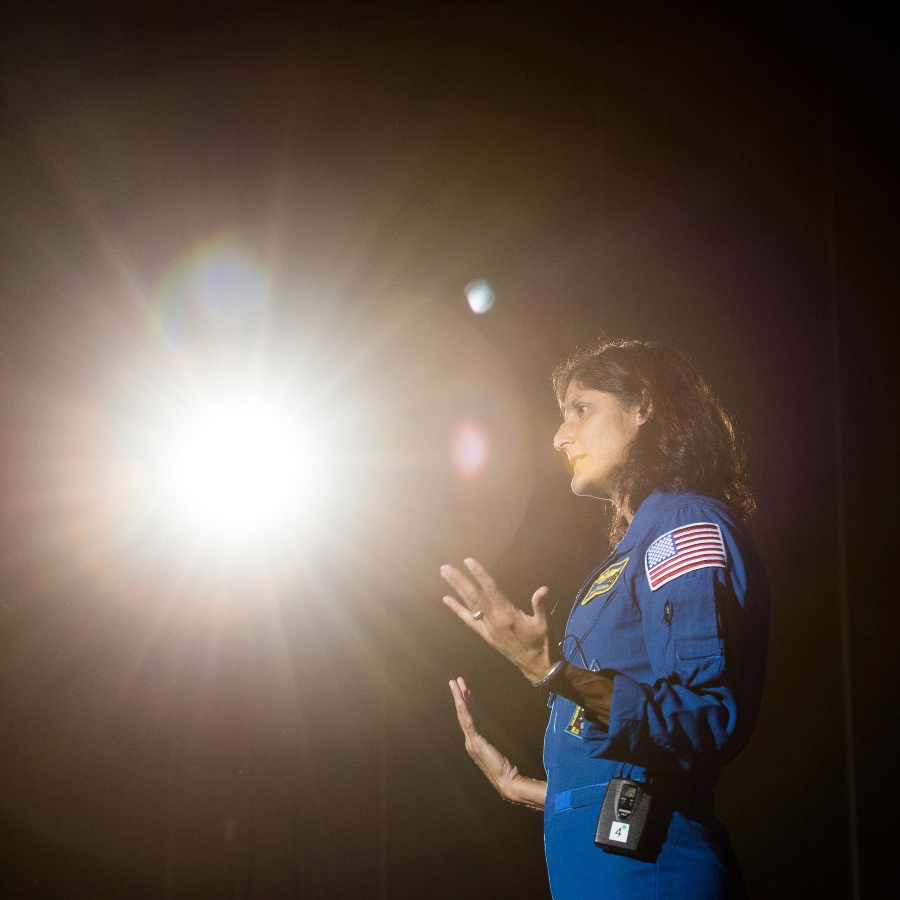It’s fair to describe Chandrika Tandon as precocious. She was 14 when she started college, 18 when she got into IIM Ahmedabad. At 24, she became the first Indian woman to make partner at consulting firm McKinsey. In her forties, the businesswoman and philanthropist embarked on a parallel career as a musician, which, three decades later, has culminated in a win on music’s biggest stage. Triveni, Tandon’s collaborative 2024 record with South African flautist Wouter Kellerman and Japanese cellist Eru Matsumoto, won Best New Age, Ambient or Chant Album at the Grammy awards held earlier this month.
“Music helped me find myself,” says the 70-year-old Chennai-born, New York-based artist who has trained in Hindustani classical music with stalwarts such as Pandit Jasraj, Vijay Kichlu, Girish Wazalwar, Veena Sahasrabuddhe and Subhra Guha.
Tandon’s name might not ring as many bells as that of her younger sibling, former PepsiCo CEO Indra Nooyi, but as the founder and chair of Tandon Capital Associates, she was already an accomplished businesswoman before her Grammy triumph. Among her several accolades was receiving the 2016 Albert Gallatin Medal from New York University (NYU), where she is on the board of trustees.
Her philanthropic activities include running the Krishnamurthy Tandon Foundation, and donating $100 million to NYU’s School of Engineering in 2015, along with her husband, Ranjan Tandon, the founder of hedge fund Libra Advisors. Most recently, she gave $2 million to her alma mater Madras Christian College (MCC) to help set up its School of Business, which was launched this January.
However, it’s her Grammy win that has catapulted her into the spotlight. Thanks to the relentless media coverage, we are now privy to little anecdotes from her life: how she went on a hunger strike (“for two days”) when her mother didn’t allow her to join MCC because it was perceived as “a boy’s college”, or how, during her placement interview for IIM Ahmedabad, she impressed the professors with a perfect rendition of a French song. A chunk of her first bonus from McKinsey went towards a pricey Martin guitar and a stereo system, which meant she had to survive on rice and chutney the next month.

She has also spoken about how, in 1999, reading Paramahansa Yogananda’s Autobiography of a Yogi during a transatlantic flight prompted her to reevaluate her entire life.
Tandon was on the verge of signing “a mega deal” that would have required her to spend four days of the week in Europe. “I cried my way through the whole flight, at the airport and on my way home,” she recalls. “Anyone who knows me will know that I’m not a crier. It’s just not me. I’m Type A. I shut myself up in my study for the next two days.”
She spent that weekend grappling with some existential questions: Is this how I want to spend my life? What is happiness?
“It was like a deluge. I really think God just broke me down.” The answers, she figured, lay in returning to the one thing to which all her “happiest moments” were tied: music. “Because we came from a very simple background, when I was little I used to have a thousand chores. I don’t remember what chore I did, but I remember what song I was singing. All my experiences in my early years were defined by songs. That’s why I decided that whatever I did, I had to consciously make time for music,” says Tandon.
But she never intended to become a recording artist. Her first album, 2005’s Soul Mantra, was meant to be a gift to give her father-in-law on his 90th birthday. Its nine tracks comprise renditions of his favourite mantra, ‘Om Namah Shivaya’, in nine Hindustani classical ragas. When the folks at the UK-based label Navras chanced upon the collection and asked if she would be interested in releasing it, she agreed without realising the impact her music could have on listeners. “I had people writing to me to say ‘My son was an alcoholic. For the last month, I’ve been playing ‘Om Namah Shivaya’ to him, and he has stopped drinking’,” says Tandon.
Her sophomore effort, 2009’s Soul Call, based around ‘Om Namo Narayana’, came to her after she suddenly woke up at 3 am one day and “was hearing these tunes in ragas I hadn’t really learned or mastered in any way”. It eventually earned her her first Grammy nomination, in the Best Contemporary World Music Album category.
Not all her releases have done as well, but Tandon, who releases her records through her not-for-profit label, Soul Chants Music, is fine with that. “Every couple of years, [I get] a new idea and just make an album. Sometimes, it gets no traction and not too many people listen to it, but sometimes we win a Grammy,” says Tandon, who has put out five albums till date.
Balancing her parallel careers has been fairly easy, she says. “The thing that I’ve learned is that we’re all multidimensional human beings. But very often, because of the accidental lives we live, we focus on just one dimension of our life, family and work. Then, very late, we suddenly realise there was a third dimension, or a fourth. I feel so lucky that in all sorts of circumstances I was able to explore that second and third and fourth dimension in a deep way. I think of how barren my life would have been without music, even though I would have been incredibly successful.”





